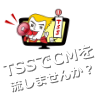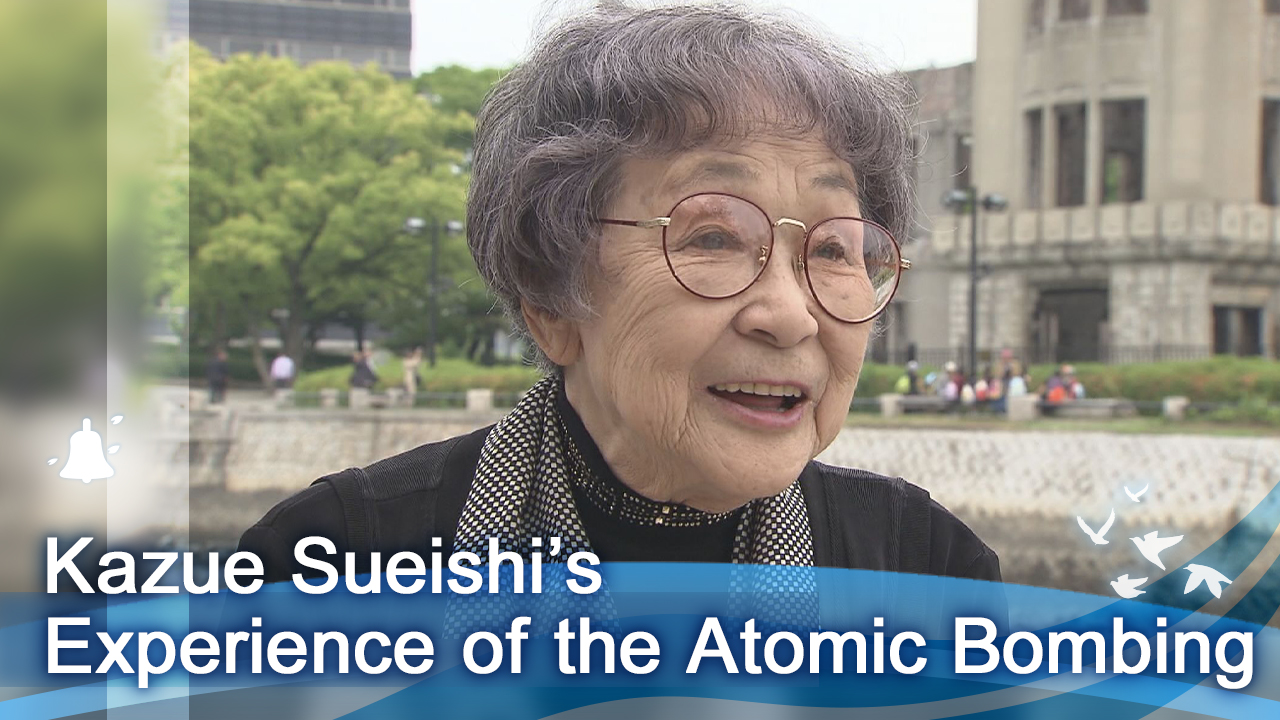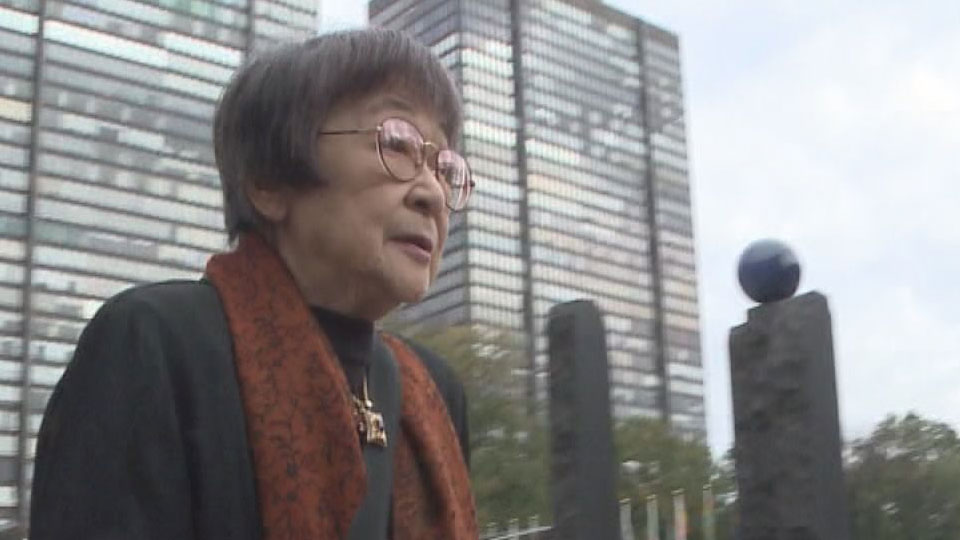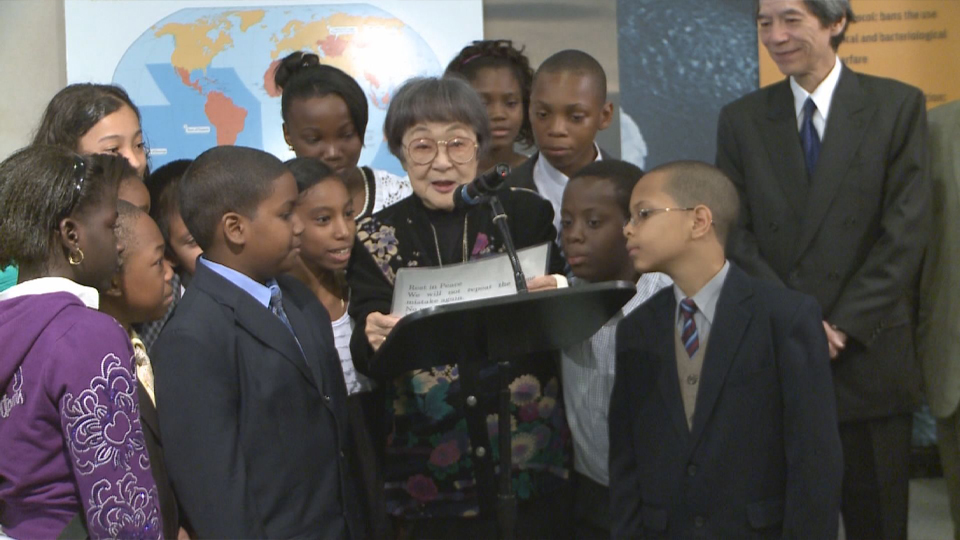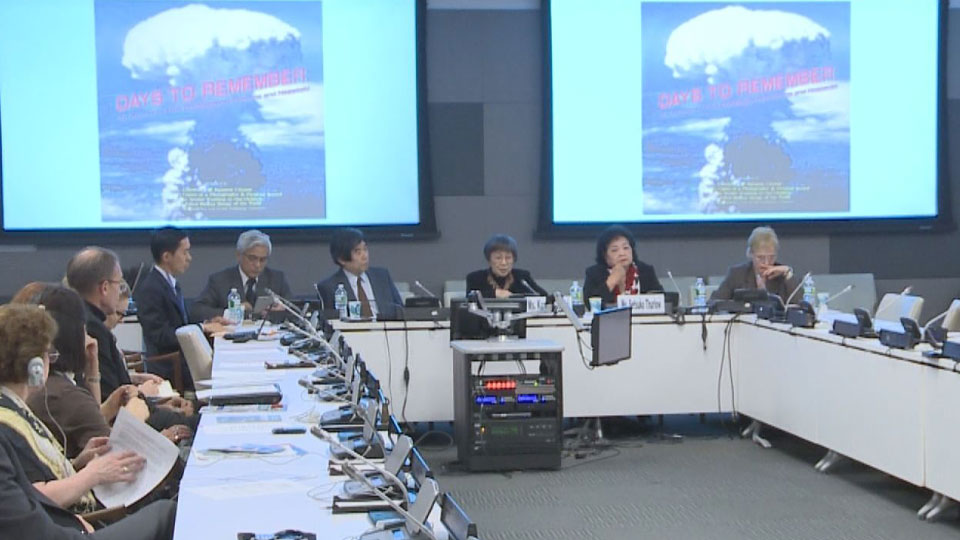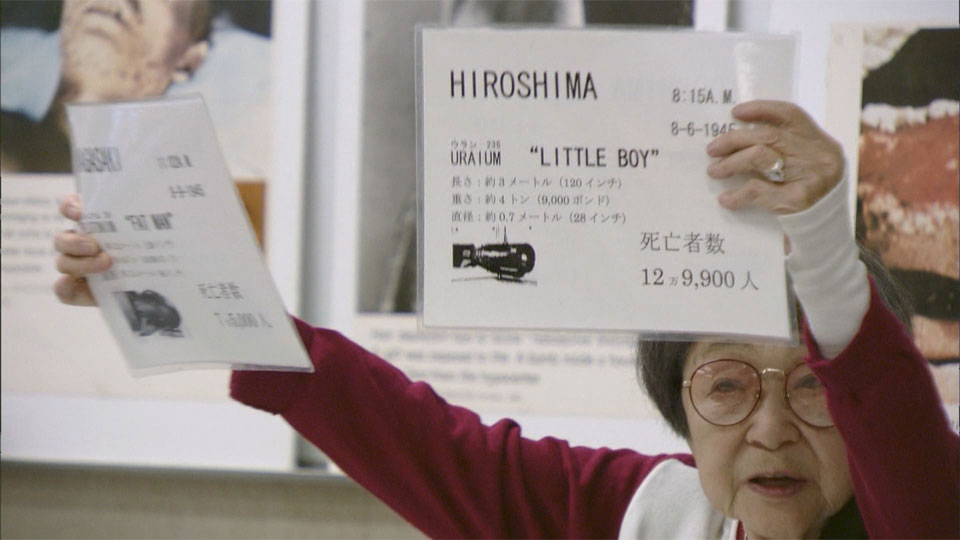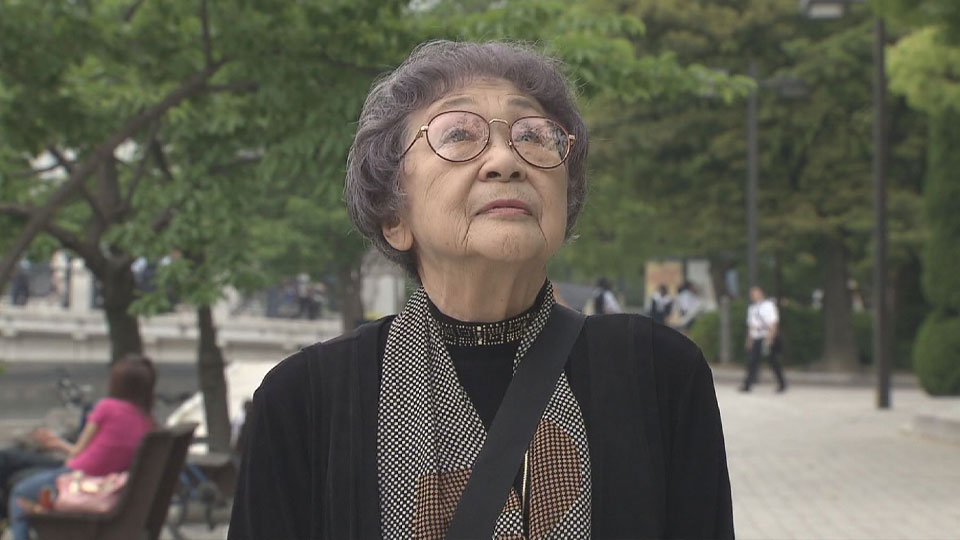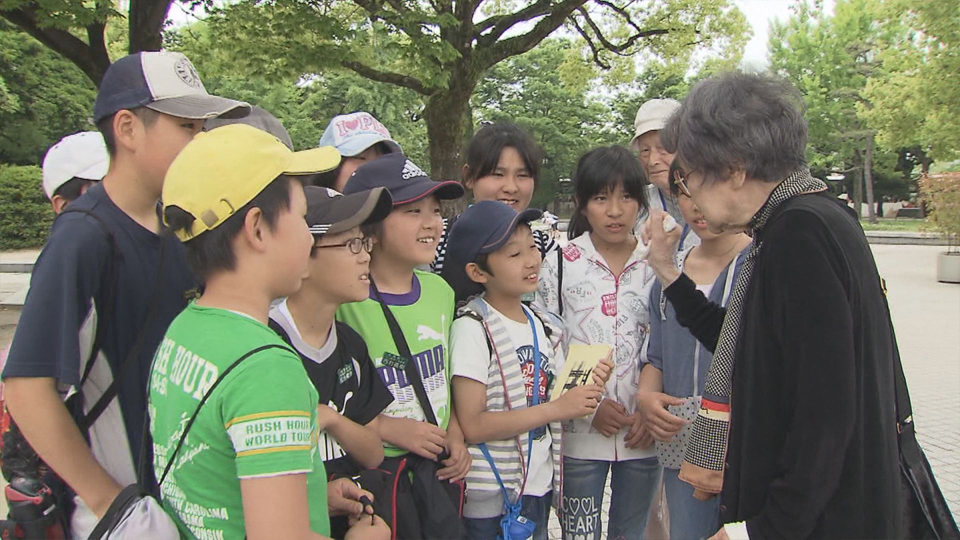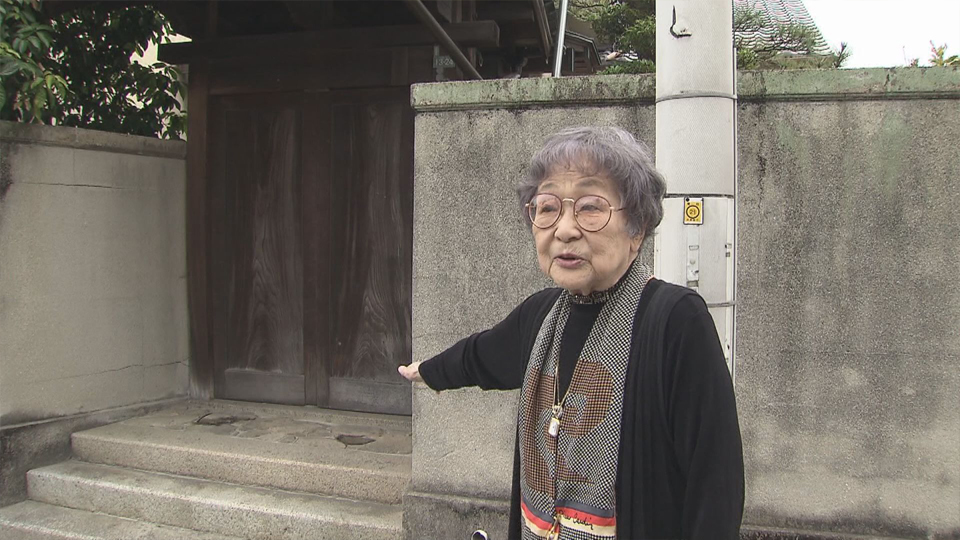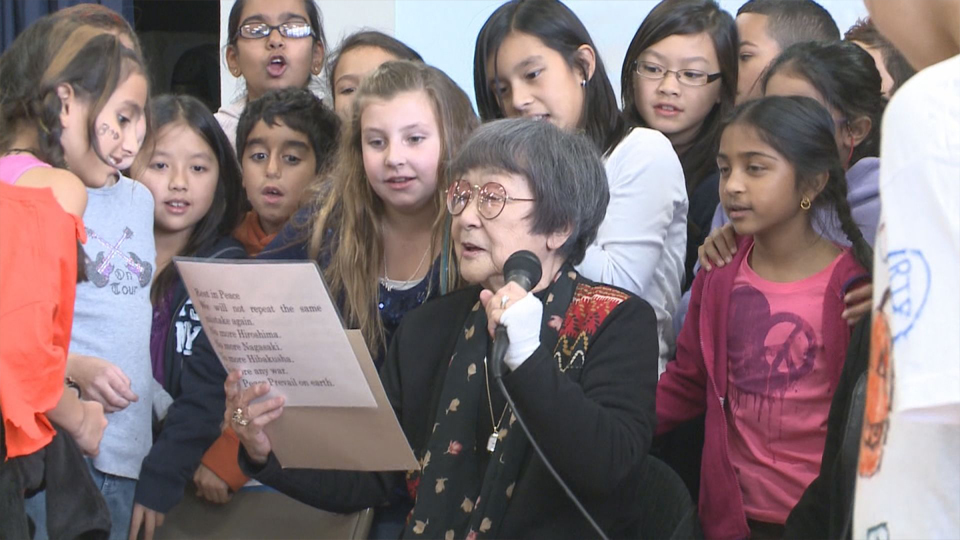Kazue Sueishi's Experience of the Atomic Bombing
Wednesday, January 31th, 2024
Hiroshima Peace Program: TSS Archive Project and The Next Generation Project, a collaboration between Nagasaki University and TSS, present A Hibakusha Living in the US: Kazue Sueishi’s Experience of the Atomic Bombing Available globally on January 31
This mini-documentary featuring the atomic bomb testimony of former President of the US Hiroshima and Nagasaki Atomic Bomb Survivors Association, Ms. Kazue Sueishi, was created by TSS (TSS-TV), a television broadcasting company located in the atomic-bombed city of Hiroshima, and Nagasaki University. It will be released for streaming globally on January 31, 2024, on the TSS Archive Project official website.
The Next Generation Project began in FY 2022 is a program that aims to pass on the reality of the atomic bombing to the next generation by translating atomic bomb survivor (hibakusha) testimonies and peace-related news into English in collaboration with the younger generation. This is the third undertaking in this program following others at Hiroshima University’s Center of Peace (Professor Kawano’s research group) and at the University of Idaho in the United States.
Hibakusha Kazue Sueishi (1927-2017)
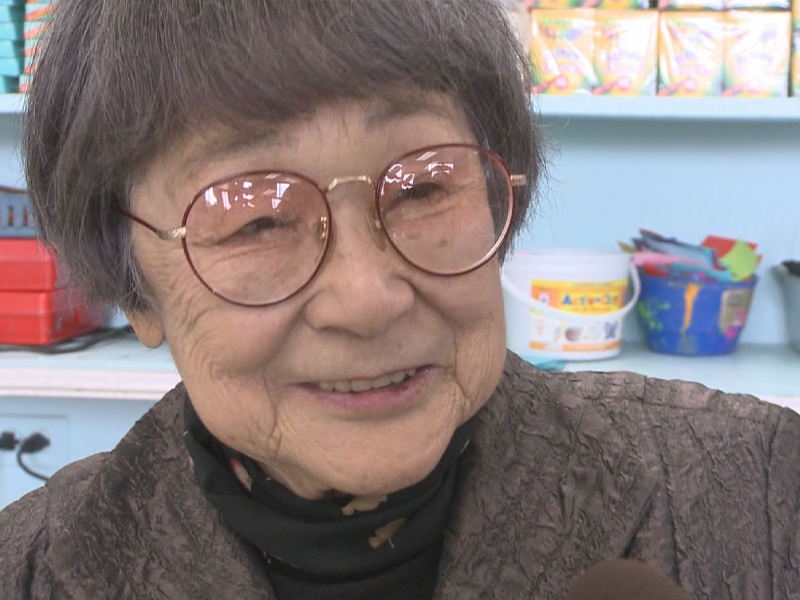
Former president of the US Hiroshima and Nagasaki Atomic Bomb Survivors Association. Born in Pasadena, California (US) in 1927, she returned to Japan when she was 9 months old. At 18, she experienced the atomic bombing at her home in Minami-Kannon-machi, Nishi Ward, Hiroshima, located at a distance of 2.2 kilometers from the hypocenter. After the end of WWII, she went to the US, and, in the 1970s, she began campaigning for health check-ups for hibakusha who lived in the US and couldn’t get health insurance. She continued to appeal for the importance of nuclear weapons abolition through special peace education classes for children where, for 40 years primarily in the Los Angeles area, she conveyed to children the horrors of nuclear weapons. She also gave her testimony of the atomic bombing at the UN as a Communicator for a World Without Nuclear Weapons appointed by the Japanese Ministry of Foreign Affairs. Affectionately, she was known to all as Mama Kazu.
Production Collaboration
Fumihiko Yoshida
Director of Research Center for Nuclear Weapons Abolition, Nagasaki University (RECNA)
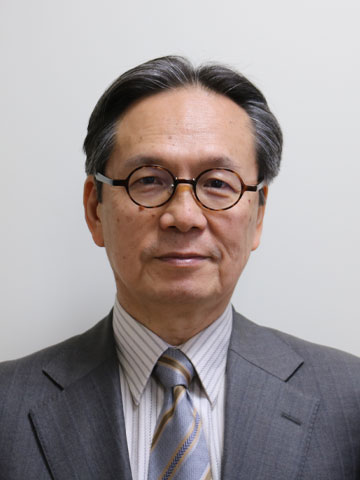
Through Ms. Suyeishi's life experiences, I hope many Japanese and people worldwide will learn more about American Survivors. I believe the reality of being a citizen of the country that dropped the atomic bombs and a hibakusha simultaneously must have been an unimaginable hardship for her. I also hope that Ms. Suyeishi's story will help us think about what the use of nuclear weapons causes to human beings from a new perspective that transcends borders.
About Fumihiko Yoshida
He researches the relationship between nuclear strategy and nuclear disarmament, and how to reduce the risk of using nuclear weapons.
Hiroko Kurosaki
Department of Nuclear Disarmament and Non-Proliferation
Graduate School of Global Humanities and Social Sciences, Nagasaki University
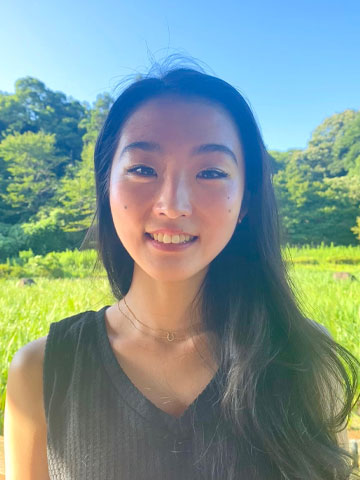
I’m delighted to have been a part of the project that features Ms. Suyeishi, whose story I believe should be told and remembered. Throughout this project, it has not been easy for me to imagine how hard it was for her, not to mention all hibakusha (atomic bomb survivors) back in the U.S., to live between two countries, the one that dropped the atomic bombs and the one that was attacked. However, I think the difficulty in understanding the whole picture of the Japanese American hibakusha is a testament to the magnitude of their hardships.
Knowing the trajectory of her life, I felt that Japanese Americans and overseas hibakusha testify that nuclear weapons do not discriminate against people. These genocidal weapons take countless lives, regardless of race, nationality, faith, or wealth, when they are used. Human beings can never coexist with nuclear weapons. That is why I believe that nuclear weapons must be abolished. I am convinced that each one of her testimonies will encourage the world to become aware of this.
To close, her speech reminds us that war is not a solution to any problem and never will be. We are not to hate but to respect and treat each other with love. Then peace will surely follow. That is what I learned from Ms. Suyeishi’s unshakeable conviction, and I hope her message gets across to you as well.
Rachel Nicholson, Translator

More so than her testimony or activism, it is Ms. Sueishi’s positive spirit that left an impression on me the most. Her view that life begins from here, that if we give up, then all of this is meaningless is powerful and inspiring. She endured unimaginable hardship and trauma, yet harbored no hatred for the US. Instead, she poured herself into working to educate the next generation and into providing health check-ups for hibakusha in the US. Everywhere she went, she sowed the seeds of peace with love and care. In the last scene, Ms. Sueishi asks a group of children if they like war. As wars continue today, I believe that now, more than ever, we must ask ourselves this same question that is so simple even a child could answer.
Noriko Wakaki, Production and supervision
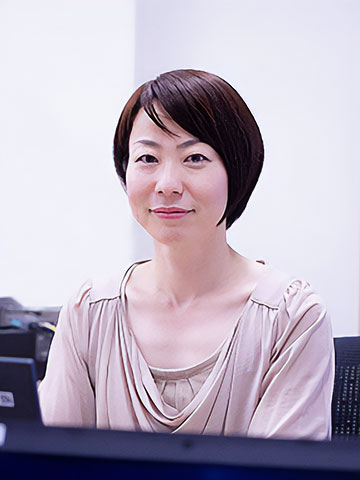
I began interviewing Mama Kazu (Kazue’s nickname) nearly 15 years ago, having taken on the assignment from my predecessor. From the first moment I met her, she was so friendly and always faced any question I had head on. She would also often use humor and was always so charming. What stands out to me is that when giving her testimony of the atomic bombing, it didn’t matter whether she was speaking to diplomats or to elementary schoolers, she always had the same message: we cannot allow there to be anymore hibakusha; it must end with us. This was the message she conveyed with every ounce of strength in her small body. Mama Kazu would say that she was one of the few American hibakusha. As a reporter working in the atomic-bombed city, I truly feel the need to continue the work she began and ensure that the seeds of peace she planted grow and bear fruit.
About Noriko Wakaki
Noriko has worked in news production as a reporter since joining TSS. After spending three years as a reporter in New York (US) from 2010 to 2013 as an FNN foreign correspondent, she became the main newscaster for TSS Super News FNN. In addition to serving as a reporter covering government, she is also chief of planning, coming up with ideas to convey local information, cast TV personalities, and more, from her own unique perspective.


